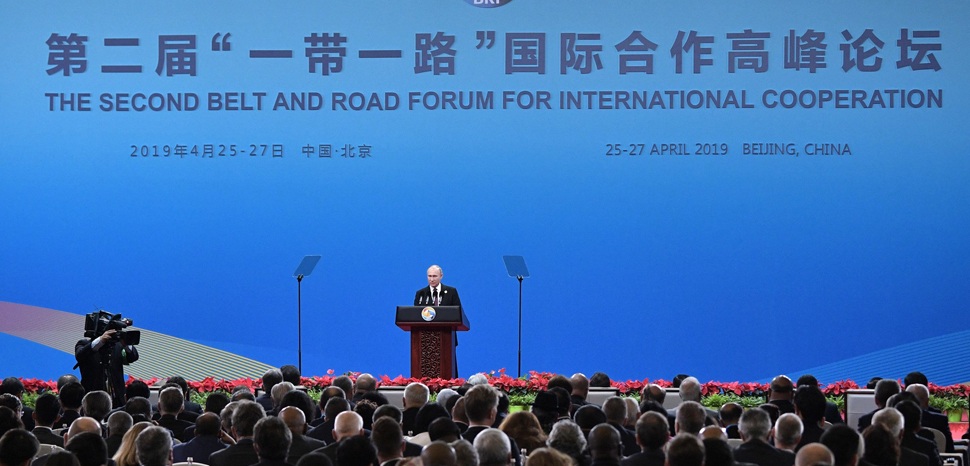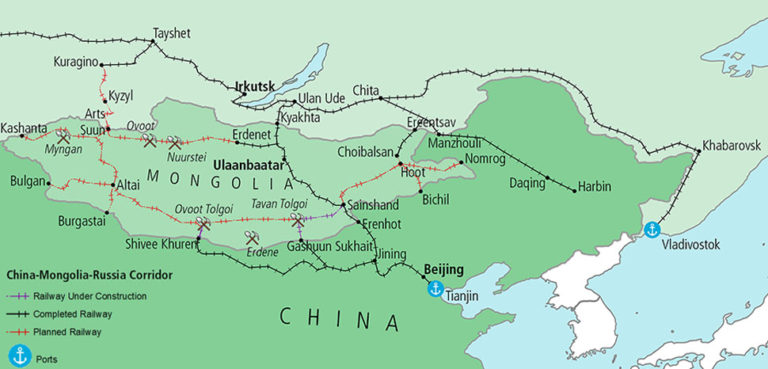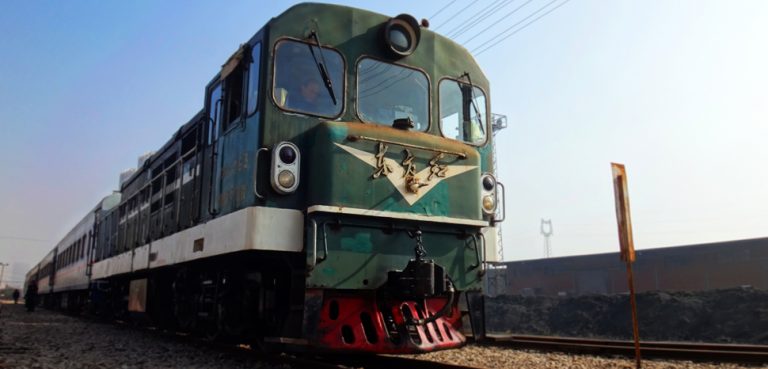As China sets out to deal with an unfolding financial crisis among coronavirus-stricken African members of its flagship Belt and Road Initiative (BRI), or new ‘Silk Road’, some in the West sceptical of the enterprise’s professed development objectives will be alert to countries possibly ceding stakes in projects in return for loan repayment concessions.
Beijing has long denied claims that investments in BRI, a trillion-dollar infrastructure project strengthening commercial ties between China and much of the developing world, risk saddling recipients with so much debt that they have little option but to hand over controlling stakes in assets and/or agree to granting China excessively long leases – so-called debt-trap diplomacy.
President Xi Jinping and his officials have sought to emphasise BRI’s contribution to economic development. And while it is true that Chinese funds are helping to build vital transport links and spur industrial activity in low-income countries, the debts they are incurring in the process are looking increasingly unsustainable.
That appears to be the case in Africa, where China is viewed as the single largest creditor. Johns Hopkins University identified some $152 billion in Chinese loan financing advanced to 49 African countries between 2000 and 2018. Their ability to service Chinese loans – in 2018 an estimated debt of $64 billion – might now be seriously undermined by plunging commodity prices and recession. The IMF forecast that the economies of sub-Saharan Africa will contract by 3.2 per cent this year, “considerably worse than was anticipated in April.”
In recent years, BRI countries have cancelled or renegotiated projects over debt concerns, yet with pandemic-related financial distress, more are now asking China for flexibility over their repayment schedules, and several are understood to be African states, according to the FT. China signed up to a G-20 pledge in April to suspend debt-servicing until the end of the year, potentially freeing up 76 of the poorest countries, 40 of them in sub-Saharan Africa, to spend scarce funds on dealing with the economic damage wreaked by the health crisis.
But according to the business publication Euromoney, China added caveats that would effectively exclude hundreds of large loans extended through BRI. An opinion piece in the Atlantic Council’s public policy blog pointed out that Chinese officials draw a distinction between interest-free, government-to-government credits and preferential loans from the China Export-Import Bank and the China Development Bank that “represent the largest part of China’s overseas lending.”
In June, President Xi told African leaders that he would write off interest-free loans due this year, but these are said to account for less than 5 per cent of Chinese lending to Africa. Worryingly for the continent – 39 of whose countries are part of the BRI programme – it seems that Beijing does not consider preferential loans to be up for negotiation. An article in China’s state-owned Global Times said the loans are “not applicable for debt relief” due to the commercial character of the projects they finance.
The article stressed, however, that repayment problems could be dealt with by several approaches, such as China adding grants to help revive projects; use of Chinese firms to assist operations; or conducting debt-for-equity swaps.
For those who regard China as a predatory lender, the potential offer of debt-for-equity swaps is ominous. In 2017, Sri Lanka granted the Chinese a 70 per cent stake in – and a 99-year operational lease for – the port of Hambantota, after it struggled with debt servicing. When he came to power, Malaysia’s former premier Mahathir Mohamad vowed to cancel or renegotiate “unfair” BRI projects agreed by his predecessor.
The opaqueness of many BRI transactions means it can be hard to determine the nature of the risks countries are taking on. While President Xi last year promised to make projects more transparent and fiscally sustainable, critics will nonetheless be alert to Beijing possibly exploiting its African partners’ financial weakness to seek bigger stakes in BRI projects during bilateral negotiations over debt relief.
Having to tackle its own economic woes, China’s generosity when rescheduling debt servicing may be limited. Beijing will however be well aware that its detractors will seize on any evidence of it exploiting its leverage in negotiations. Yet there is another factor that likely militates against the latter. For BRI to work, China needs the developing world to see it as an economic partner. An intransigent attitude to debt relief undermines that perception, particularly in the eyes of Africa countries, as their economies have been some of the hardest hit by the pandemic. It could put them off future BRI projects.
Those are the calculations Chinese officials will probably make, but these days it is hard to second-guess Beijing given its conduct over Hong Kong. In its defence, China would say that in the past it has shown flexibility on debt servicing, notably its decision in 2018 to extend Ethiopia’s repayment of a loan for a railway linking Addis Ababa to neighbouring Djibouti by 20 years. Moreover, Johns Hopkins University researchers have revealed that in cases they examined of African countries facing debt difficulties, there were no asset seizures.
Yet Beijing’s critics would point to Tanzania’s leader John Magufuli’s indefinite suspension last year of a port project agreed by his predecessor, which granted China a 99-year lease for the facility, as evidence of the tough terms Beijing is suspected of negotiating. And there have been persistent concerns that Djibouti, estimated to have received nearly $1.4 billion in Chinese finance for projects, may fall victim to the “debt trap.”
With some BRI projects probably hanging in the balance due to the pandemic, Beijing has attempted to bolster confidence and renew faith in the enterprise by supporting health services in partner countries. The initiative could also serve to sweeten the pill it might ask loan recipients to swallow when reviewing repayments, or simply distract attention from the difficult negotiations.
Dubbed the “Health Silk Road”, a recasting of an earlier initiative, it is hard to judge how effective the measure will be. China’s partners, particularly those in Africa, will no doubt welcome any medical help they receive, but they will hope that they emerge from the shadow of the pandemic with their assets intact.
Adrian Stones is a director and Yigal Chazan head of content at Alaco, a London-based business intelligence consultancy.




